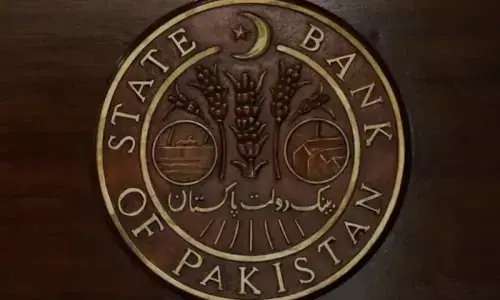ISLAMABAD: The genomic sequencing of the only poliovirus, detected from the sewage water in Pakistan during the current year, shows that the virus belongs to Nangarhar province of Afghanistan.
The Type-1 Wild Poliovirus (WPV1) in an environmental sample was detected in Lahore district (Gulshan Ravi, ES site) during the current month.
The genomic sequencing is a process to decipher the genetic material found in an organism or virus. Sequences from specimens can be compared to help scientists track the spread of the virus, how it is changing and how those changes may affect the public health.
In first week of January environmental samples were collected from 38 cities of Pakistan. Of these samples, 37 were found negative at the National Institute of Health (NIH). The cities declared negative for presence of the virus included Bannu, Dera Ismail Khan, Peshawar, Islamabad, Rawalpindi, Sialkot, Qilla Abdullah, Quetta, Karachi and Southern KP region.
The sewage samples are important in detecting the virus’ prevalence in a country. If the virus is found in samples collected from any area, it is called positive. These samples are a basic parameter to determine the success of polio campaigns. The presence of the poliovirus in sewage also shows low immunity in children and they are at risk of catching the virus.
According to a statement issued by the NIH, the virus found in Gulshan Ravi had links to a poliovirus found in Nangarhar province of Afghanistan in November last year.
Federal Minister for Health Abdul Qadir Patel said that Pakistan and Afghanistan were together in their fight against polio virus.
“While the isolation of the virus is a cause of concern, it is excellent to note that it was detected promptly. This timely detection of the virus in the environment is crucial in protecting the children from being paralysed by the poliovirus,” he said.
“The only way to stop the virus is to vaccinate all children under the age of five. It is critically important that parents and caregivers, particularly in Lahore, ensure that their child is vaccinated in the February round,” Mr Patel said.
The nationwide immunisation campaign that concluded on Jan 20 vaccinated children in the Lahore division, while additional campaigns will also be conducted in February and March to address the outbreak.
Dr Shahzad Baig, Coordinator of the National Emergency Operations Centre (NEOC), said that it was not unexpected since Pakistan and Afghanistan were considered as one epidemiological block in which polioviruses moved across borders because there was widespread population movement.
“In the past year, we have worked very closely with the Afghanistan programme and treat the virus in either country as our own. Neither Pakistan nor Afghanistan can be free of poliovirus until both countries stop its transmission,” Dr Baig said.
The last polio case found in Lahore was in July 2020, but the virus has been periodically detected in its sewage water. Last year, four environmental samples were found positive for wild poliovirus in Lahore district.
In 2022, 20 children were paralysed by the virus in the country — all of them belong to the southern districts of KP. Of the 20 children, 17 were from North Waziristan, two from Lakki Marwat and one from South Waziristan.
Published in Dawn, January 25th, 2023


































